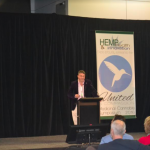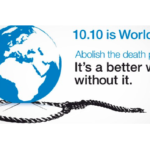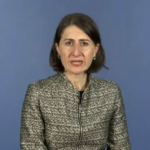Critics Call High Time on NSW Police as First Responders, as Labor Contemplates Change

“Nearly sixteen weeks ago, I stood at my bedroom window on 15 July at 2.15 am. I watched my partner downstairs, he’s looking at the fire truck, going, “What happened just there?”, said Taite Collins on Gadigal land before Sydney Town Hall on 1 November 2025. Collins was the partner of Colin Burling, whose life was taken at the scene as attending New South Wales police officers restrained him to death.
“Little did he know that the fire brigade had called in and said he was under a drug psychosis. What a total lie. They didn’t even talk to him,” recalled the man from Sydney’s inner-city Waterloo. “On that night, I not only witnessed by watching it, but I also filmed my partner’s death. Literally, police strangled him to death.”
Collins was speaking at the 1 November Stop Deaths in Custody rally in the Sydney CBD. He explained that he wasn’t speaking at the demonstration that focused on Aboriginal custody deaths solely on behalf of his non-Indigenous partner Colin, but rather for all. Collins added that the “games” NSW police are playing in terms of mental health crises have to stop and professionals must be deployed.
The unnecessary killing of Burling on 15 July this year further raised the long-term issue that is the crisis of NSW police as first responders to mental health episodes, which rises to the top of the news cycle periodically, every time such tragedies occur. However, on this occasion, the need for alternative responders to mental health crises has been front and centre since May 2023.
Amidst calls to inquire into NSW police brutality in the wake of several police killings of civilians having such episodes as the officers had been called out to provide assistance in mid-2023, the Minns government had a mental health access inquiry look into this issue, and as social justice group anticop has pointed out, NSW Labor is finally considering alternative first responders.
“Easily avoidable”
“Colin Burling should still be here,” said Tom Raue, the spokesperson for anticop, which is also an online education resource. “He needed help, and instead the police killed him. It’s a horrifying case where so much was done wrong – police escalating a mental health episode, paramedics intending to sedate him, though it’s unclear if this eventuated, and police piling on top of him.”
“We know that holding somebody in a prone position, especially while they’re agitated or sedated often leads to death from asphyxiation or cardiac arrest,” the advocate for greater justice in policing systems continued. “So, his death was predictable and easily avoidable.”
Two NSW police officers held up a sheet to hide the view of their colleagues swarming on top of 45-year-old Burling, who, from Collin’s footage, was on the ground out the front of his residence in Waterloo, with several officers on top of him. Burling was calling out that he couldn’t breathe, yet this didn’t prevent officers from continuing to restrain him until he was dead.
Five NSW civilians having mental health episodes were killed by NSW police between May 2023 and January 2024. The first involved the lethal tasering of a 95-year-old great-grandmother, who suffered dementia and was attempting to evade police in her nursing home with the aid of a walking frame.
“‘Welfare check’ has become an Orwellian term,” Raue insisted, “cops showing up and killing a person hardly protects their welfare.”
A crisis as old as state law enforcement
The NSW inquiry into mental health access set out in its June 2024 report that “the attendance of police in mental health emergencies can escalate emotional and psychological distress and has been harmful in a significant number of cases”, while it further noted that police representatives themselves support a “health-led approach to mental health emergencies”.
In its own April 2024 internal inquiry assessment of police as first responders, the NSW Police Force outlined that “using police officers as the primary response to mental health crisis increases the risk of adverse outcomes for mental health consumers, limits appropriate service engagement and treatment, and increases missed opportunities to address consumer mental ill health.
“NSW police are killing people in mental distress,” Raue continued. “When somebody is having a mental health incident they need a calming presence – a trained clinician. Instead, police attend these calls and escalate the situation. A NSW Greens-led inquiry in 2024 recommended a health-led response to mental health emergencies, but the Minns government is dragging its feet.”
“Police ‘understaffing’ and training are not the issue,” the anticop founder elaborated. “Police solve problems with violence – it’s what separates them from other workers. No amount of training will change the fundamentally violent nature of police. When trained killers show up with guns, pepper spray and tasers, we shouldn’t be surprised that people die.”
The common understanding is that once the NSW government hands the NSW Police Force fresh powers, there is no withdrawing them. However, when it comes to being empowered to deal with mental health crises, many officers don’t want to be. Police aren’t adequately trained to deal with these situations, and the majority don’t want the killing of another person on their conscience.
“Even the reactionary NSW Police Association recognises that mental health emergencies require a health response – not cops,” Raue underscored. “The Minns government normally takes its marching orders from the Police Association, so I can’t fathom why they have resisted change for so long.”
An easy solution long resisted
Key findings of the NSW mental health inquiry were that police as first responders “escalate emotional and psychological distress” and a “broad range of stakeholders” want an alternative. The inquiry further recommended that NSW Health assist in exploring alternative models, so police are a “secondary response to mental health emergencies… to support the safety of primary responders”.
The inquiry further highlighted the recent implementation of the Right Care, Right Person model by the London Metropolitan police in November 2023, which involves an alternative Triple 1 emergency assistance number that avoids police involvement in any response to a mental health crisis.
“Right Care, Right Person is a much better model than what we have now. It recognises that there are situations where the presence of police will make things worse,” said Raue, and he added that it is “a positive step that the government is finally consulting on a model like this, but it’s not enough.”
The NSW government currently has a community consultation underway that involves a new model for responding to mental health emergencies in the community. The inquiry is raising the Triple 0 emergency number and the prospect of improving the process for mental health callouts. However, the timeframe in which to complete the consultation survey closes this Sunday 16 November 2025.
“Even under this model, police will show up to some incidents, so we should take away their ability to kill,” the anticop spokesperson further set out. “Most police officers in the UK don’t carry firearms, which should also be the case in NSW. There should be greater restrictions on the police use of handcuffs, sedatives and so-called “less lethal” weapons like tasers that frequently kill.”
“While alternative first responders would be a welcome change, prevention is better than cure,” Raue said in concluding. “We should defund the police and put more money into mental health services, quality public housing, education and job programs so that we can improve mental health before it reaches a breaking point.”







